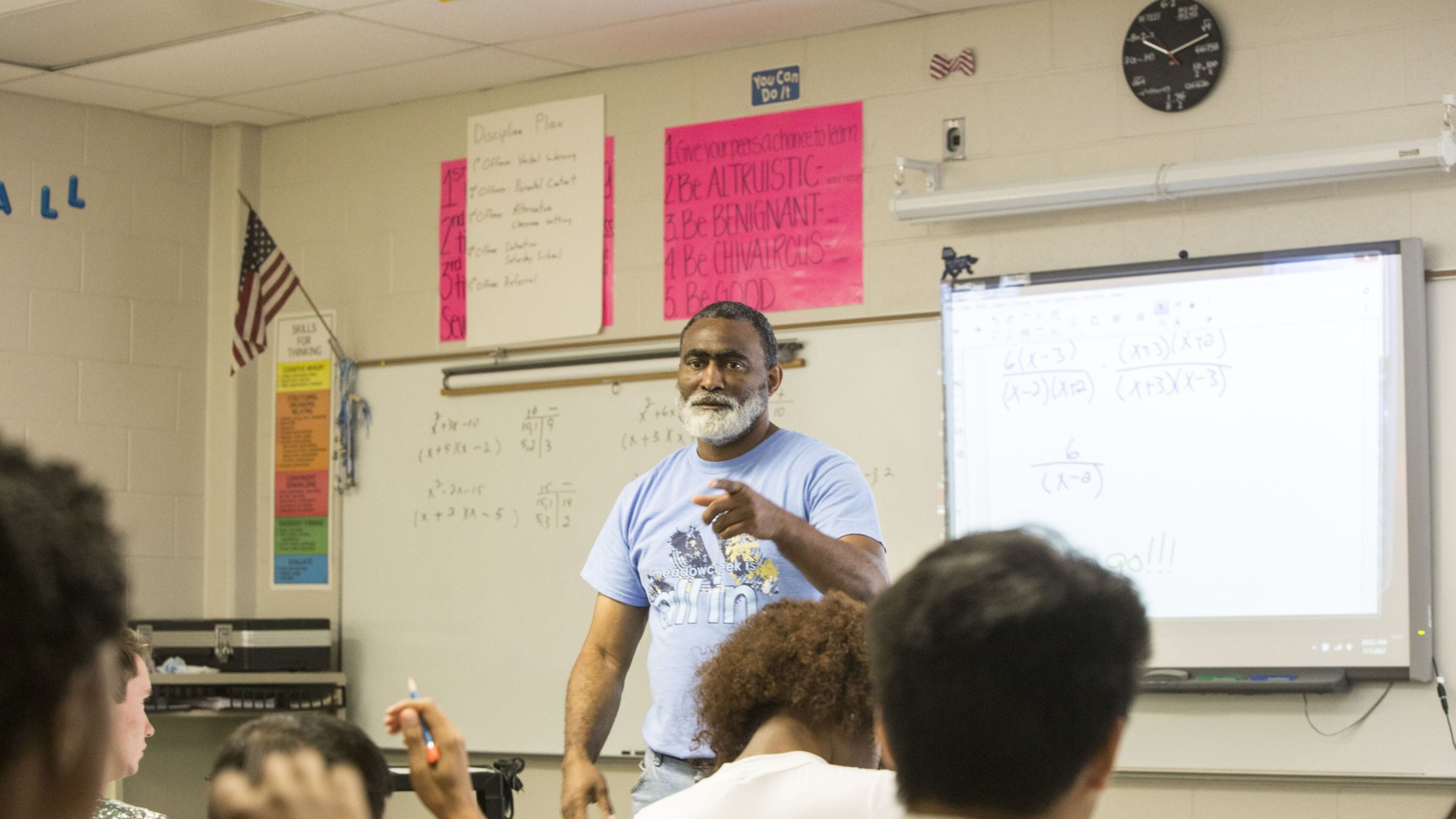Aggressive hiring paying off for metro Atlanta school districts

Metro Atlanta school districts are looking to hire about 1,400 teachers before some begin welcoming students back in about three weeks.
Even amid a national teacher shortage of about 60,000 this time last year, and ongoing concerns with fewer people going to college to become educators, hiring teams have concentrated on aggressive hiring and a widened net for recruiting. School districts have worked to make the jobs more attractive to people, boosting starting salaries and offering signing and retention bonuses, as well as incentive pay for teachers who take assignments at problem schools.
“We’ve had a pretty aggressive plan targeting early hiring,” said Skye Duckett, deputy chief human resources officer for Atlanta Public Schools.
Educators associations are worried, however, about the growing trend of using uncertified teachers to fill the gaps.
Standardized test scores are flat or declining in a large part of metro Atlanta. The worry is that empty teaching posts are being filled with long-term substitutes and uncertified teachers with little invested in their students’ success. These groups have the highest turnover rate among employee groups in schools.
"It's a big, big, big, big problem," said Verdaillia Turner, president of the Georgia Federation of Teachers. "This is an anti-public school agenda. They think that everybody can teach. But none of us would want a medical doctor who didn't have the hours of training or the certifications. Why would we even entertain having folks in classrooms that are not certified?"
Turner said the Quality of Basic Education Act and the No Child Left Behind Act included calls for highly certified professionals to help close achievement gaps and improve student performance.
Atlanta Public Schools and the DeKalb County School District have the most uncertified teachers — at 52 and 85, respectively — in metro Atlanta. Gwinnett County has just one. Cobb County has fewer than 10. Clayton doesn’t use certification waivers, which allow untrained teachers into full-time positions.
DeKalb officials and hiring managers elsewhere have said uncertified teachers bring a needed skill set to the classroom, especially in special education and science, technology, engineering and math. And many districts have mentorship programs that pair uncertified instructors with certified veterans. School board members have pushed over the last year, since many metro Atlanta districts switched to Strategic Waiver School Systems, for some alternate road to certification. DeKalb is the only district with no written policy giving a timeline to get waived instructors certified.
DeKalb County School District officials informed the school board in June that it had 438 teacher vacancies to fill for the upcoming school year, up from 372 the same time during the previous year. They’ve chopped away at that number significantly in the last few weeks with several job fairs.

Everett Patrick, the district’s interim human capital management officer, said via a district spokesperson that hiring managers have actively been recruiting and hiring daily to be fully staffed by the start of the new school year.
At Atlanta Public Schools, officials were seeking to hire 123 teachers in late June, down from 278 the same time last year.
Duckett, the deputy chief human resources officer, said a team led by Nicole Lawson, the district’s executive director of talent management, enforced an early hiring timeline. Beginning in February, they set hiring goals for each month. New practices to get candidate screening complete faster also helped. It’s been an easier task as the district’s number of students has fluctuated little, meaning fewer added vacancies, Duckett said.
The district also has begun utilizing a service that provides already taped interviews, allowing them to choose from a larger pool of candidates where some of the interview process has been handled for them. Typically, a candidate would go through the application process then a phone screening, followed by rounds of in-person interviews and submitting a writing sample.
“Administrators only have to see three or four people instead of spending weeks on interviews,” she said.
Lawson said the district offered open contracts to teachers early in the process, allowing them to have a guaranteed slot when the school year began. She said her team also concentrated on hard-to-fill vacancies beginning in the fall, and stability in the ranks to continue a good retention trend.
“We’ve focused a lot on leadership retention over the last couple of years,” she said. “Our teacher retention is about 96 percent, which has stayed the same. Often, having a leader there keeps teachers, too.”
The district also is getting candidates through teacher residency programs at Georgia State University, including the Woodrow Wilson Fellowship, which pays schooling costs for teachers.
Gwinnett County officials said in June they were still seeking to fill 198 teaching positions, fewer than the 264 they had at the same time in 2016. Increased retention played a large role in the decrease.
Clayton and Cobb counties were contending with the same number of openings they had in 2016, with 300 and 200, respectively.
Fulton County officials say they’re still looking to fill about 150 vacancies as of early July. The other districts reported vacancies to the AJC in June. Last June, Fulton had 300 openings in early summer.
Throughout Georgia, the last recession had a lingering effect on public school teachers’ pay. From the 1999-2000 to 2012-13 school years, the average salary shrank 5.7 percent, according to U.S. Education Department statistics.
Hiring teachers in Georgia has become harder as districts increase starting pay to become more competitive and the number of people wanting to become teachers in Georgia shrinks. During the 2007-2008 school year, 12,436 students received teaching certificates for the first time, according to the Georgia Professional Standards Commission. That number currently is closer to 8,500. A similar trend exists nationally.
In other Education news:



